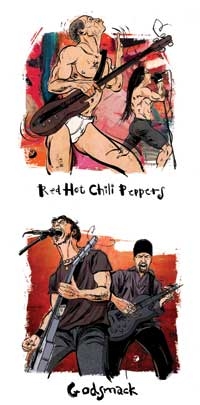The Future of Recorded Music - Part 1 Page 2
 Track 1: Eye of the Tiger
Track 1: Eye of the Tiger
Some experts find all this talk of the CD's demise a little premature. "The CD is not dead," says Ted Schadler, vice president and principal analyst at Forrester Research. "Though, if you look at sales, clearly it's ailing. There are a lot of reasons for that - not least of which is the massive shift toward digital devices. But there's a second, even bigger factor: the decline of revenue in the overall music market, which has been widely attributed to piracy - and our data supports that conclusion. However, it's more complex than that. The music industry is a hit-driven business, and when you don't have hits, you don't have sales."
So where have all the hits gone? If you've listened to much of the uninspired dreck on commercial radio lately, you know why sales are slipping.
But Schadler notes another reason why downloading technology is pushing the public's Play button. "With the systematic shift from the CD package to digital downloading of singles, you have the unraveling of a fabulously successful bundling pricing strategy, where people had to buy all the songs on a CD even if they only wanted one of them."
True, singles have ruled before, particularly in the 1950s and '60s in the form of the 45-rpm record. But the '60s also witnessed the rise of the LP - and with it, that winning bundling strategy. "With LPs, you had album art, concept albums, albums that told stories and reflected milestones in musicians' lives," says Schadler. "It was a very potent distribution vehicle." The album concept continued when the torch passed to the CD. Unfortunately, says Schadler, "CDs tend to be longer than LPs. It turned out to be a lot harder to create 60 minutes of high-quality music than 30. How many CDs can you point to and say, 'I like every song on that album'? The overall quality of the product declined."
The CD is also suffering from the ways of The Customization Generation, which likes to time-shift, place-shift - do all sorts of shift. "People are deciding they're their own best sequencers," says Mike McGuire, VP of research for Gartner, Inc. "That old thing that used to take bands so long - 'Gee, dude, in what order should we play these songs?' - consumers now have the tools to do. Playlists are so powerful. I can pick and choose what I want. I can create a soundtrack for the next two hours."




























































